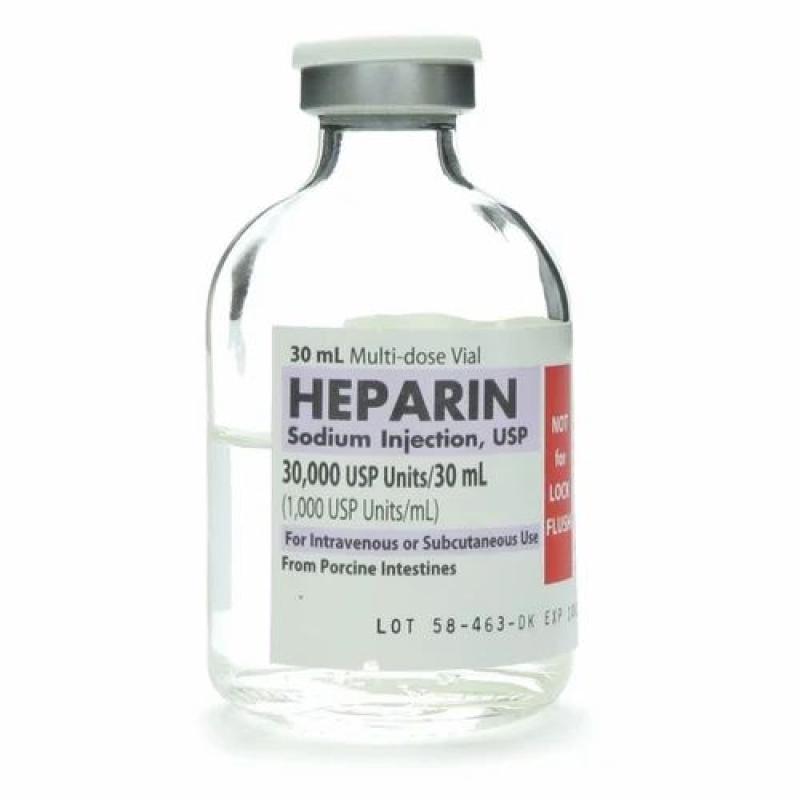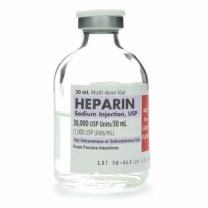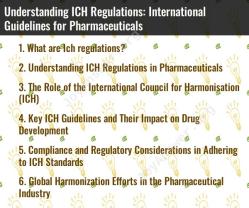What is the USP of heparin sodium injection?
Heparin sodium injection is an anticoagulant medication used to prevent and treat blood clots. Its unique selling points (USPs) lie in its pharmacological properties and clinical applications. Here are some key USPs of heparin sodium injection:
Anticoagulant Properties:
- Heparin is a potent anticoagulant, meaning it helps prevent the formation of blood clots. This property is particularly valuable in medical situations where clotting is undesirable, such as during surgery or in certain medical conditions.
Rapid Onset of Action:
- Heparin has a relatively rapid onset of action, making it suitable for situations where immediate anticoagulation is required, such as in the treatment of acute thromboembolic events.
Versatility:
- Heparin can be administered intravenously (IV) or subcutaneously (subQ), providing flexibility in its use. This versatility allows for various administration methods based on the patient's condition and medical requirements.
Treatment and Prevention:
- Heparin is used both for the treatment of existing blood clots (therapeutic use) and for preventing the formation of new clots (prophylactic use). Its dual application makes it valuable in different medical scenarios.
Monitoring and Adjustability:
- Heparin's anticoagulant effect can be monitored using laboratory tests, such as the activated partial thromboplastin time (aPTT). This allows healthcare providers to adjust the dosage as needed, ensuring the desired level of anticoagulation without an increased risk of bleeding.
Bridge Therapy:
- Heparin is often used as a "bridge therapy" in situations where a patient requires anticoagulation but needs a temporary interruption in oral anticoagulant therapy, such as before surgery.
Reversibility:
- Unlike some other anticoagulants, the anticoagulant effect of heparin can be rapidly reversed using protamine sulfate. This feature is important in emergency situations or when a patient needs immediate correction of excessive anticoagulation.
Standard of Care:
- Heparin has been a standard anticoagulant therapy for many years, and its safety and efficacy are well-established. It is widely used in hospitals and clinical settings for a variety of thromboembolic conditions.
Proven Efficacy:
- Heparin has a long history of successful use in preventing and treating deep vein thrombosis (DVT), pulmonary embolism, and other conditions associated with abnormal blood clotting.
It's important to note that while heparin has many advantages, it also has potential risks, and its use should be carefully monitored by healthcare professionals. Individual patient characteristics, medical history, and specific clinical situations will influence the decision to use heparin and the appropriate dosage. Always consult with a healthcare provider for personalized medical advice and information.
What distinguishes heparin sodium injection from other medical treatments?
Heparin sodium injection is a type of anticoagulant medication. Anticoagulants work by preventing blood clots from forming. Heparin sodium injection is distinguished from other medical treatments in several ways.
- Mechanism of action: Heparin sodium injection works by binding to antithrombin III, which is a protein that helps to inhibit the coagulation cascade. This binding prevents the formation of thrombin, which is an enzyme that is essential for blood clot formation.
- Administration: Heparin sodium injection is typically administered by injection under the skin or intravenously. This means that it must be given by a healthcare professional.
- Duration of action: Heparin sodium injection has a short duration of action, which means that it must be given regularly to maintain its anticoagulant effect.
- Side effects: Heparin sodium injection can cause a number of side effects, including bleeding, bruising, and allergic reactions.
How does heparin sodium injection address specific medical needs or conditions?
Heparin sodium injection is used to treat a variety of medical conditions, including:
- Deep vein thrombosis (DVT): DVT is a blood clot that forms in a deep vein, usually in the leg. Heparin sodium injection is used to prevent DVT from forming in people who are at risk, such as those who have recently had surgery or who are bedridden.
- Pulmonary embolism (PE): PE is a blood clot that travels to the lungs. Heparin sodium injection is used to treat PE and to prevent it from recurring.
- Atrial fibrillation (AF): AF is a heart condition that causes an irregular heartbeat. Heparin sodium injection is used to reduce the risk of stroke in people with AF.
- Heart surgery: Heparin sodium injection is used to prevent blood clots from forming during and after heart surgery.
Heparin sodium injection is a valuable medical treatment that can help to prevent and treat a variety of medical conditions. However, it is important to be aware of the potential side effects before taking this medication.



